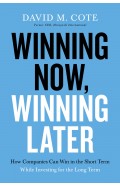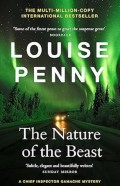Human, All Too Human & Beyond Good and Evil
By: Friedrich Wilhelm Nietzsche
-
Rs 2,065.50
- Rs 2,295.00
- 10%
You save Rs 229.50.
Due to constant currency fluctuation, prices are subject to change with or without notice.
Beyond Good and Evil (1886) is a scathing and powerful critique of philosophy, religion and science. Here Nietzsche presents us with problems and challenges that are as troubling as they are inspiring, while at the same time outlining the virtues, ideas, and practices which will characterise the philosophy of the future. Relentless, energetic, tirelessly probing, he both determines that philosophy's agenda and is himself the embodiment of the type of thought he wants to foster.
Beyond Good and Evil (1886) is a scathing and powerful critique of philosophy, religion and science. Here Nietzsche presents us with problems and challenges that are as troubling as they are inspiring, while at the same time outlining the virtues, ideas, and practices which will characterise the philosophy of the future. Relentless, energetic, tirelessly probing, he both determines that philosophy's agenda and is himself the embodiment of the type of thought he wants to foster.
Human, All Too Human & Beyond Good and Evil
By: Friedrich Wilhelm Nietzsche
Rs 2,065.50 Rs 2,295.00 Ex Tax :Rs 2,065.50
Zubin Mehta: A Musical Journey (An Authorized Biography)
By: VOID - Bakhtiar K. Dadabhoy
Rs 892.50 Rs 1,050.00 Ex Tax :Rs 892.50
The Origins of Political Order From Prehuman Times to the French RevolutioN
By: Francis Fukuyama
Rs 4,045.50 Rs 4,495.00 Ex Tax :Rs 4,045.50
Manning Up: How the Rise of Women Has Turned Men into Boys
By: Kay Hymowitz
Rs 845.75 Rs 995.00 Ex Tax :Rs 845.75
The Obama Syndrome: Surrender At Home War Abroad
By: Tariq Ali
Rs 1,100.75 Rs 1,295.00 Ex Tax :Rs 1,100.75
The Quest For Meaning: Developing A Philosophy Of Pluralism
By: Tariq Ramadan
Rs 1,185.75 Rs 1,395.00 Ex Tax :Rs 1,185.75
No similar books from this author available at the moment.
Winning Now, Winning Later - How Companies Can Succeed in the Short Term While Investing for the Long Term
By: David M Cote
Rs 2,630.75 Rs 3,095.00 Ex Tax :Rs 2,630.75
Screw It, Let's Do it - Lessons in Life
By: Richard Branson
Rs 1,345.50 Rs 1,495.00 Ex Tax :Rs 1,345.50
High on Life - How to Naturally Harness the Power of Six Key Hormones and Revolutionise Yourself
By: David JP Phillips
Rs 3,865.50 Rs 4,295.00 Ex Tax :Rs 3,865.50
Disney My First Stories: Tinker Bell's Best Birthday Party
By: Editors of Phoenix International Publications
Rs 447.50 Rs 895.00 Ex Tax :Rs 447.50
The Nature of the Beast - (a Chief Inspector Gamache Mystery Book 11)
By: Louise Penny
Rs 2,245.50 Rs 2,495.00 Ex Tax :Rs 2,245.50
Painting the Plate - 52 Recipes Inspired by Great Works of Art from Mark Rothko, Frida Kahlo, and Man Y More
By: Felicity Souter
Rs 10,165.50 Rs 11,295.00 Ex Tax :Rs 10,165.50
Zubin Mehta: A Musical Journey (An Authorized Biography)
By: VOID - Bakhtiar K. Dadabhoy
Rs 892.50 Rs 1,050.00 Ex Tax :Rs 892.50
Human, All Too Human & Beyond Good and Evil
By: Friedrich Wilhelm Nietzsche
Rs 2,065.50 Rs 2,295.00 Ex Tax :Rs 2,065.50














-120x187.jpg?q6)





-120x187.jpg?q6)










-120x187.jpg?q6)






